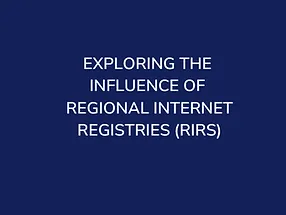In the digital era, connectivity is critical, and the allocation of IP addresses is key to that connectivity. The Asia-Pacific Network Information Centre (APNIC) serves as the foundation of this process, precisely regulating the distribution of internet resources across the Asia-Pacific area. Let’s look at APNIC’s critical function in ensuring equitable access to IP addresses and promoting the expansion of the internet infrastructure.
The Backbone of Digital Connectivity
In the broad expanse of the digital universe, every device, website, or online service is identified by a unique identifier called an IP address. These addresses provide the foundation of digital networking, allowing for smooth communication around the world. Behind the scenes, APNIC (Asia-Pacific Network Information Centre) manages IP address allocation, ensuring that the internet infrastructure in the Asia-Pacific area runs smoothly.
Facilitating Equitable Distribution
At the heart of APNIC’s mission lies the equitable distribution of IP address resources. As the Regional Internet Registry (RIR) for the Asia-Pacific, APNIC oversees the allocation of both IPv4 and IPv6 address space to a diverse array of stakeholders, including Internet Service Providers (ISPs), enterprises, government agencies, and educational institutions. Through a transparent and community-driven process, APNIC ensures that IP address resources are allocated based on demonstrated need, technical requirements, and adherence to established policies and best practices.
Promoting IPv6 Adoption and Transition
APNIC’s goal is to ensure an equal distribution of IP address resources. APNIC, or the Asia-Pacific Regional Internet Registry (RIR), is in charge of providing IPv4 and IPv6 address space to a variety of stakeholders, including Internet Service Providers (ISPs), businesses, government entities, and educational institutions. Through a transparent and community-driven process, APNIC ensures that IP address resources are issued based on verifiable need, technical requirements, and adherence to established standards and best practices.
Community Engagement and Policy Development
Transparency and community participation are important values that govern APNIC operations. APNIC works with stakeholders from a variety of backgrounds, including network operators, industry experts, government representatives, and the larger internet community, to develop policies in an open and inclusive manner. This collaborative approach guarantees that IP address allocation regulations match the changing demands and dynamics of the internet ecosystem, enabling innovation and tackling new challenges.
Empowering Digital Inclusion
In addition to its main tasks, APNIC is dedicated to promoting digital inclusion and closing the digital divide in the Asia-Pacific region. APNIC provides training, capacity building programs, and outreach activities to empower communities, particularly those in underserved areas, with the knowledge and tools they need to harness the power of the internet for economic, social, and educational growth. Through these efforts, APNIC hopes to build a more inclusive and accessible digital landscape for everyone.



